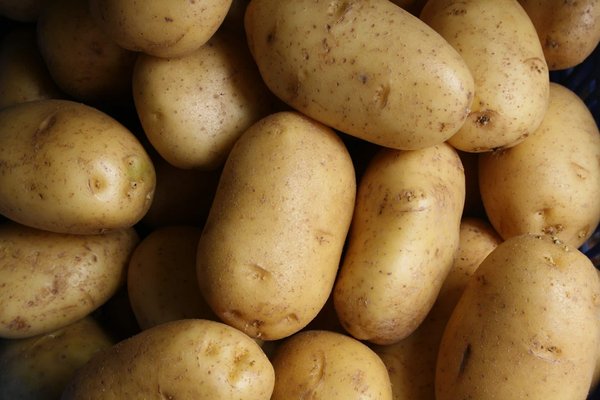
Welcome to Gotchabar
Your source for Generalist (EN) insights. Explore our articles and guides.
Latest articles
Our recent publications

How to Bake a Gluten-Free Almond and Orange Cake with Olive Oil?
If you've been thinking that following a gluten-free diet means giving up your favorite desserts, think again. Today, we...

Can a Dual Battery System Be Installed in a Land Rover Discovery for Extended Off-Grid Capability?
In the world of vehicles, the Land Rover Discovery is a symbol of ruggedness, reliability, and resilience. It's a vehicl...

Can a Sequential Gearbox Retrofit Improve the Driving Dynamics of a Honda NSX?
In the realm of performance vehicles, the Honda NSX has earned its place as a formidable force. This vehicle is, in esse...

How to Implement a Front Brake Cooling Kit on a BMW 3 Series for Better Track Performance?
As firm believers in the mantra "power is nothing without control," we recognize the value of a well-tuned brake system,...

How to Optimize the ECU for E85 Fuel in a Ford Focus ST for Increased Power?
The Ford Focus ST, with its turbocharged engine, is a compelling car platform for those looking for a balance between da...

What Are the Pros and Cons of Switching to Synthetic Gear Oil in a Porsche 911's Transmission?
Automobile enthusiasts, Porsche 911 owners and engine aficionados in general constantly search for ways to optimize the ...

What's the Best Method for Aligning the Drive Axles on a Toyota Celica for Reduced Torque Steer?
A finely tuned and high-performing car not only provides a smooth drive but also ensures the safety of the occupants. On...

How Can Small UK Café Chains Create a Brand Identity Through Eco-Friendly Initiatives?
In the modern business landscape, sustainability is not just a buzzword – it's a philosophy and a practice that consumer...

How Can UK Independent Designers Use Pinterest to Enhance Online Visibility?
If you're a UK-based independent designer seeking a platform to increase your online visibility, Pinterest could be your...

How to Build a Virtual Reality-based Training Program for UK Firefighters?
In the fast-paced digital age, technology has revolutionized virtually every field. Firefighting, a profession that dema...

How to Implement AI for Personalized Learning Paths in UK Online Education?
In this digital age, the realm of education is becoming increasingly aligned with technology, as artificial intelligence...

What Are the Best Practices for UK Home Healthcare Providers to Maintain Patient Privacy?
In an era where data is the new oil, privacy is a precious commodity. Few sectors demonstrate this as starkly as healthc...

What Are the Strategies for UK Small Grocers to Compete with One-Stop Supermarkets?
In the highly competitive retail industry, small grocers often find themselves in a constant battle with large supermark...

Can You Prepare an Authentic Thai Massaman Curry with Homemade Paste?
Thai cuisine, with its rich tapestry of flavors grounded in a philosophy of balance, is a culinary delight. One dish whi...

How to Achieve Perfectly Crisp Roasted Potatoes with Duck Fat?
There are few things in the world as tantalising and comforting as perfectly crispy, roasted potatoes. And when you roas...

How to Create a Gourmet Fig and Walnut Bread with Artisan Techniques?
Are you looking to expand your baking repertoire? Looking for a unique, mouthwatering recipe to bring to your next gathe...

How to Master the Art of a Perfectly Flaky Indian Paratha with Ghee?
If you've ever sat in an Indian restaurant, inhaling the spicy aromas and watching the kitchen's hustle and bustle, you ...

What's the Best Way to Create a Refreshing Mojito with Homemade Mint Syrup?
Mojito, a cocktail as refreshing as it is flavorsome, is the perfect concoction to beat the heat. Besides its invigorati...

What's the Secret to Crafting a Gourmet Sushi Roll with Premium Tuna?
Sushi, a delicious concoction of intricately prepared rice with an assortment of ingredients, is a culinary art. From th...

How Can Developers Create Mixed-Income Housing Without Displacing Residents?
Today, the word on the streets of many cities in America is a cry for affordable housing. The existing housing market is...

How to Leverage Local Market Trends for Real Estate Development Success?
The world of real estate is a dynamic one, constantly influenced by a multitude of factors, some of which are beyond our...

How to Use Real-Time Data to Improve Facility Management?
In the realm of facility management, real-time data has emerged as an invaluable resource. This wealth of information ca...

What Are the Best Strategies for Marketing New Housing Developments to Eco-Conscious Buyers?
In the ever-evolving world of real estate, one trend has become increasingly clear: consumers are looking for green and ...

What Are the Key Considerations for Building Child-Friendly Urban Communities?
Urban design plays a critical role in shaping the lives of children. From public spaces to schools, children's interacti...

What Are the Key Factors for Building Successful Co-Living Spaces in Urban Areas?
Co-living, a socio-economic phenomenon that merges living, working, and socializing under a common roof, has been reshap...

Can a Regular Intake of Prebiotic Foods Improve Gut Health and Cognitive Function?
The health industry is saturated with discussions around gut health, cognitive function, and their interconnectedness. T...

How Can Genetic Counseling Aid Families with History of Inheritable Cancers?
Genetic counseling has emerged as a critical tool in the medical field, offering insights into a person's risk of heredi...

How Does Implementing Nature-Based Play in Schools Influence Children's Physical Fitness?
In an era where Google and digital technology dominate, understanding the importance of nature-based play in promoting c...

How to Tailor Exercise Programs for Athletes Recovering from ACL Reconstruction?
Anterior Cruciate Ligament (ACL) reconstruction is a common surgical procedure in the world of sports. Post-surgery, ath...

What Are the Pros and Cons of Teletherapy for Patients with Social Anxiety Disorder?
In an ever-evolving world fueled by technological advancements, the health sector has notably embraced innovation, parti...
